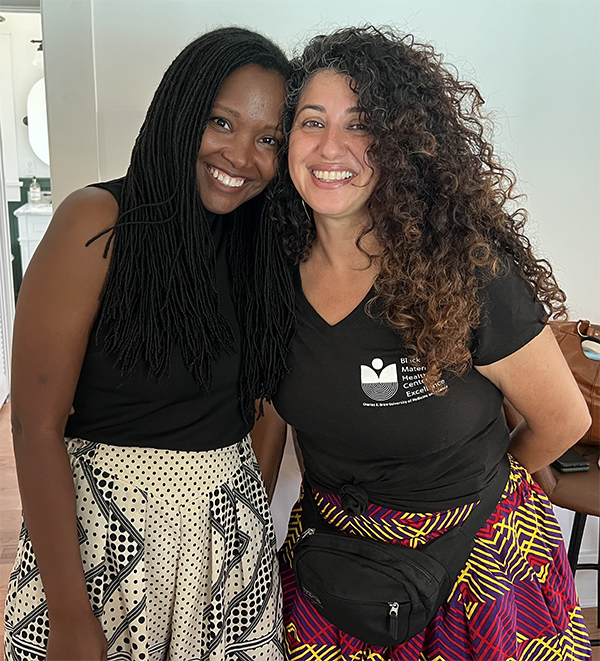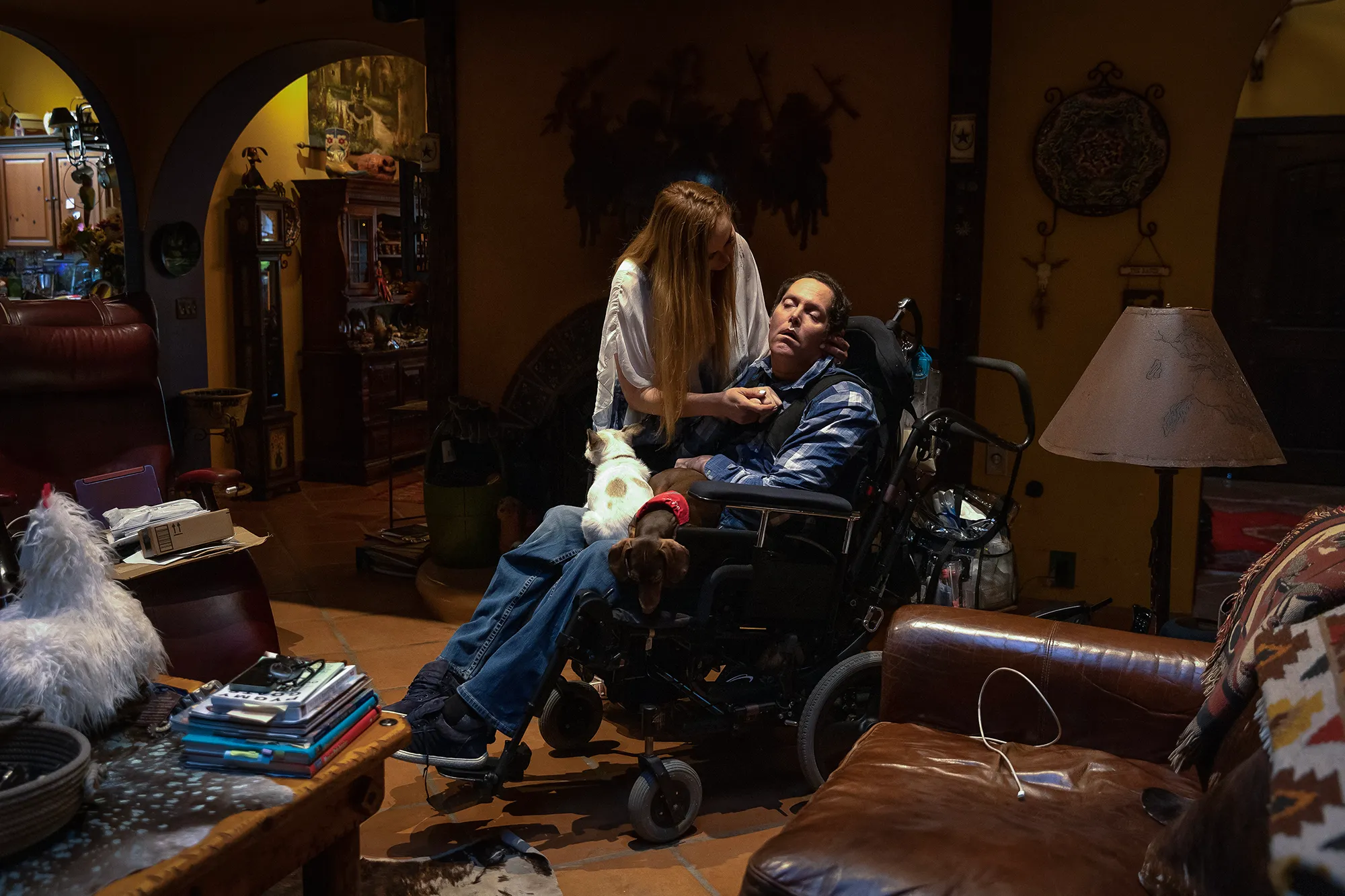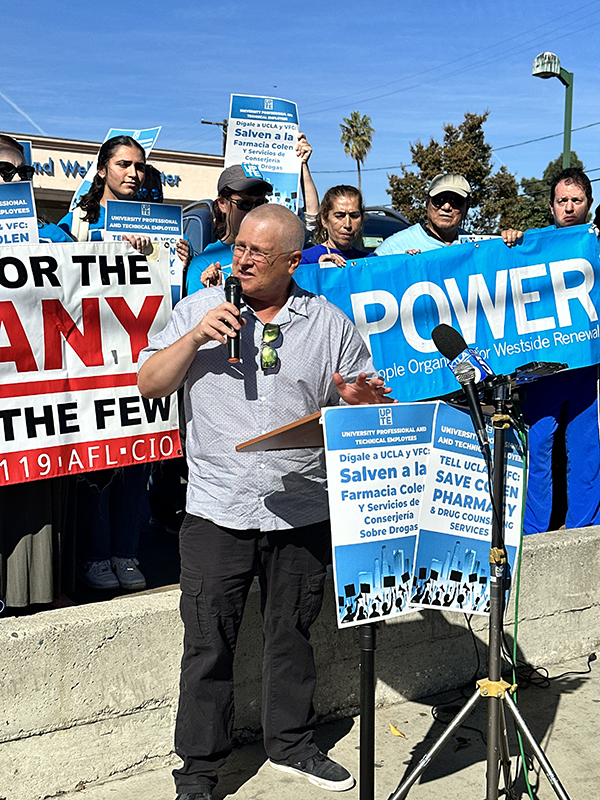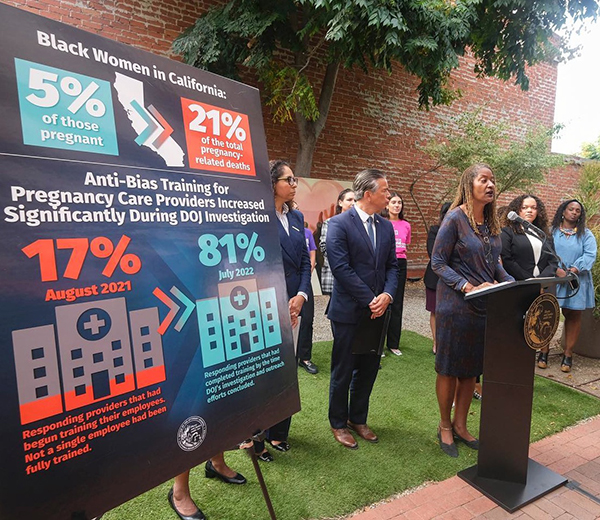By Shirley Hawkins
Contributing Writer
SOUTH LOS ANGELES — Dr. Brandi Desjolais and Bita Amani have long understood the perils facing pregnant Black women in South Los Angeles.
With the Centers for Disease Control and Prevention reporting that African-American infants are four times more likely to die from complications related to low birth weight and African-American mothers are twice as likely to receive late or no prenatal care, Black maternal health care has become a hot button issue within the Black community.
As the co-directors of the Black Maternal Health Center of Excellence, Desjolais and Amani are dedicated to addressing what they see as the structural racism that is the root cause of the high maternal and infant deaths for African-American women here and elsewhere.
“Black women experience chronic toxic stress in a society that throws up barriers along the way,” Dr. Desjolais said. “They may not have access to all the [prenatal] support they might need from their doctors or may not be completely listened to by medical professionals when they try to discuss their health issues.
“If their issues are not addressed in a timely manner, it could greatly impact them experiencing a preterm birth or even experiencing a case of infant mortality.”
Established in 2021 by the Charles Drew University of Medicine and science, the Black Maternal Health Center of Excellence is open by apppointment only from 9 a.m. to 5 p.m.
“The maternity home is not a birth center, but pregnant women can receive an appointment to visit the home and get access to prenatal and wraparound services that they may need from our disciplinary team,” Desjolais said. “They can receive access to services such as midwifery, a birthing doula, lactation consultants and mental health support at no cost.”
To publicize the opening of the center to the community, the center’s program manager Shanelle Bailey said staff members regularly participated in outreach events.
Aware that one of the countries that has the lowest mortality rates for Black babies is Cuba, Dr. Armani and Dr. Desjolais have taken part in multiple delegations of physicians, faculty, medical students and practicing nurses beginning in 2017 to travel to the country to study the country’s health system.
“The United States spends so much money on health care but has poor outcomes compared to other countries that spend much less,” Dr. Armani said. “In Cuba, although the country experiences intense sanctions, it has fantastic health outcomes that rival those of the richer countries.
“We wanted to see a nation that has a low infant mortality rate and Cuba is invested in babies being born healthy. Cuba has established maternity homes for high risk women during their pregnancies and they receive multidisciplinary care and health education and supportive services that are readily available.
“The entire health system of the country is based on community health which is at its foundational core and they prioritize funds for health promotion and prevention.
“The country is investing in all of its people,” Dr. Armani added. “They have really perfected the part of medicine where pregnant mothers feel empowered and supported. Good health care is how you relate to the patient and the community and how the patient relates to the provider. The people in Cuba are not disposable when it comes to their health care system.”
Returning to the United States, a committee was formed to discuss Cuba’s revolutionary health care system and how Charles Drew University could utilize some of the country’s health factors in South Los Angeles. Among other measures, a proposal was put forth to provide a maternity home for pregnant and expectant mothers.
“We are trying to activate that village of care that we witnessed in Cuba and we plan to return to Cuba with another delegation in March,” Dr. Armani said.
“Our mission is to improve Black maternal and infant health outcomes in Los Angeles. We envision a world where Black birthing mothers are heard, valued and protected from conception through birth and beyond.”
The Black Maternal Health Center of Excellence can be reached via its website, bmhce.org, or by phone at (323) 563-9320.
Shirley Hawkins is a freelance reporter for Wave Newspapers. She can be reached at metropressnews@gmail.com.












